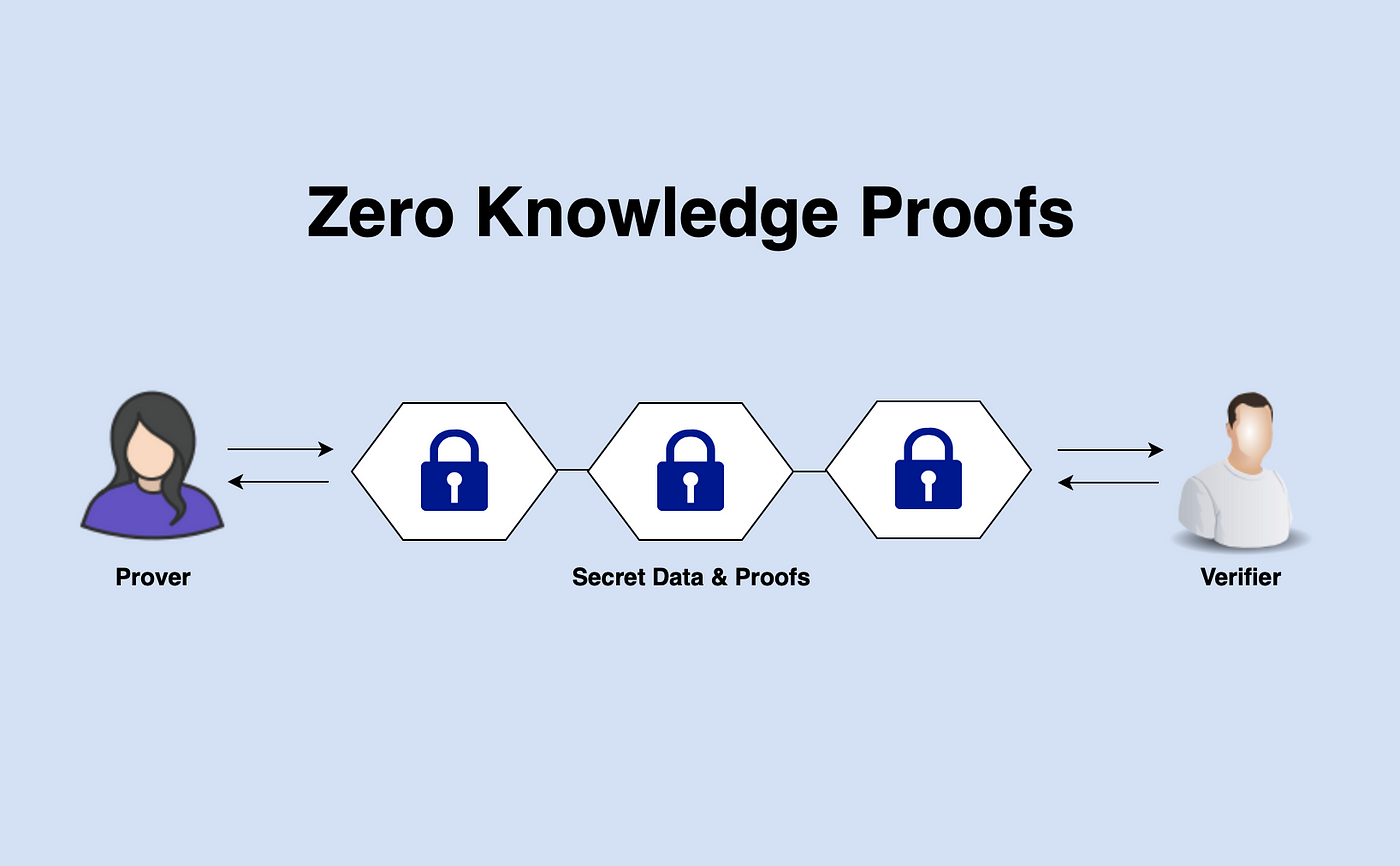How Zero-Knowledge Proofs (ZKPs) Enhance Privacy in Web3
The shift toward Web3 introduces a fundamental change in how personal data and privacy are managed on the internet. Rather than relying on centralized systems and traditional financial institutions, Web3 empowers users through decentralization, allowing for direct peer-to-peer interactions and transactions. But with this empowerment comes a new responsibility: safeguarding user data without compromising the trustless, transparent nature of blockchain technology. This is where Zero-Knowledge Proofs (ZKPs) come into play.
Zero-Knowledge Proofs, often shortened to ZKPs, enable one party (the "prover") to demonstrate the truth of a piece of information to another party (the "verifier") without actually revealing the information itself. This concept, first proposed in the 1980s, has evolved into a pivotal component of cryptographic privacy. By employing ZKPs, Web3 applications can confirm the validity of data—like transaction authenticity or user credentials—while preserving the confidentiality of that data. In an era where privacy breaches are all too common, ZKPs offer a promising solution for private, secure interactions on blockchain networks.
Key Benefits of ZKPs in Enhancing Web3 Privacy
Zero-Knowledge Proofs are gaining traction as they provide a robust mechanism to balance privacy with transparency in blockchain-based applications. Their integration into Web3 enhances user control over data, lowers the risks associated with centralized data storage, and aligns well with the principles of decentralized finance (DeFi), smart contracts, and identity management.
Data Minimization
Traditional systems require users to disclose a significant amount of personal information to verify their identity or approve transactions. ZKPs reduce this requirement by confirming the truth of specific statements without revealing sensitive details, thus minimizing data exposure.
Reduced Attack Surface
In conventional systems, data centralization poses a substantial risk, making personal information a prime target for hackers. By contrast, ZKPs allow for decentralized verification, limiting the amount of information accessible to potential attackers and reducing overall risk.
Increased User Trust and Control
Trust is essential in decentralized networks, where users interact directly without intermediaries. ZKPs allow users to prove credentials or fulfill requirements without sharing personal details, increasing trust in Web3 applications and empowering users with greater control over their data.
These benefits are key for widespread Web3 adoption, as users and developers seek privacy solutions that don’t compromise functionality or transparency. ZKPs facilitate secure and private interactions, balancing the core tenets of Web3: decentralization, transparency, and user control.

ZKP of Blockchain
ZKPs in Web3 Applications: Use Cases
The versatility of Zero-Knowledge Proofs makes them suitable for a variety of Web3 applications, from decentralized finance to secure identity management and private voting systems. By embedding ZKPs into these applications, developers can achieve secure, trustless interactions without sacrificing user privacy.
Decentralized Finance (DeFi)
DeFi platforms allow users to lend, borrow, or trade digital assets without intermediaries, relying instead on smart contracts. By using ZKPs, DeFi applications can verify user identities or transaction histories without exposing sensitive details. This enables platforms to adhere to regulatory requirements while maintaining user privacy.
Digital Identity Verification
Traditional identity verification processes involve sharing extensive personal information, leading to privacy risks. ZKPs in Web3 enable users to authenticate their identities without disclosing unnecessary data. For example, a user could prove they are above a certain age or have a specific credential without revealing additional personal information.
Private Voting Systems
Voting on blockchain has garnered significant interest as it offers transparency and immutability. ZKPs allow Web3 voting platforms to verify individual votes and provide accurate results without revealing voter identities. This is essential for ensuring voter privacy and preventing election manipulation.
Secure Data Sharing in DAOs
Decentralized Autonomous Organizations (DAOs) thrive on collaborative decision-making, often requiring sensitive data sharing. With ZKPs, DAOs can verify member votes and contributions securely, ensuring that sensitive information remains private without compromising decision-making integrity.
The Future of ZKPs and Privacy in Web3
The integration of Zero-Knowledge Proofs within Web3 infrastructure is still evolving, with continuous research and development aimed at improving scalability, efficiency, and accessibility. However, ZKPs have already demonstrated their potential to transform digital privacy standards, enabling a new era of trustless and secure interactions on decentralized platforms.
ZKPs’ potential extends far beyond Web3; these proofs can redefine user privacy in digital interactions, financial systems, and beyond. By safeguarding personal information while enabling verification, ZKPs offer an ideal privacy solution for digital environments that prioritize both transparency and security. For widespread adoption, however, further developments are needed to improve computational efficiency and reduce costs associated with ZKP implementations.
Scalability Improvements
Currently, some ZKP solutions, particularly on public blockchains, face scalability challenges due to high computational demands. Ongoing research in cryptography seeks to address these issues, aiming for lightweight ZKPs that function seamlessly on large-scale blockchain networks.
User Education and Accessibility
As with any new technology, the successful integration of ZKPs into Web3 depends on user understanding and ease of use. Simplified interfaces and educational resources are essential for helping users grasp ZKP functionality and its importance in Web3 privacy.
Collaboration and Standardization
Open-source projects and industry collaboration are critical for developing standard protocols that ensure ZKP interoperability across various Web3 platforms. This collaboration will streamline ZKP adoption, promote best practices, and foster innovation in privacy-preserving technology.
In summary, Zero-Knowledge Proofs are key to establishing secure, privacy-focused digital ecosystems in Web3. By allowing verifications without revealing personal data, ZKPs offer a sustainable path forward for a decentralized internet where user trust and privacy remain central.
References:
- Ethereum Foundation. (2022). What is Zero-Knowledge Proof?
- Binance Academy. (2023). How ZKPs Power Web3 Privacy
- Cointelegraph. (2023). Zero-Knowledge Proofs: What They Mean for Blockchain Privacy
- ConsenSys. (2023). The Role of ZKPs in Decentralized Finance
- MIT Technology Review. (2022). Exploring Privacy in Decentralized Systems
- Zcash Foundation. (2023). Privacy and Scalability in ZKP Cryptography
- Vitalik Buterin. (2021). Ethereum and ZKP Integration
- Decentralized Identity Foundation. (2023). ZKP for Digital Identity Management
- Stanford Blockchain Research. (2022). Future of ZKPs in Web3 Privacy
- World Economic Forum. (2023). Digital Privacy in the Age of Web3



































